Four DNFs this month – worse than April, but a lot better than March!
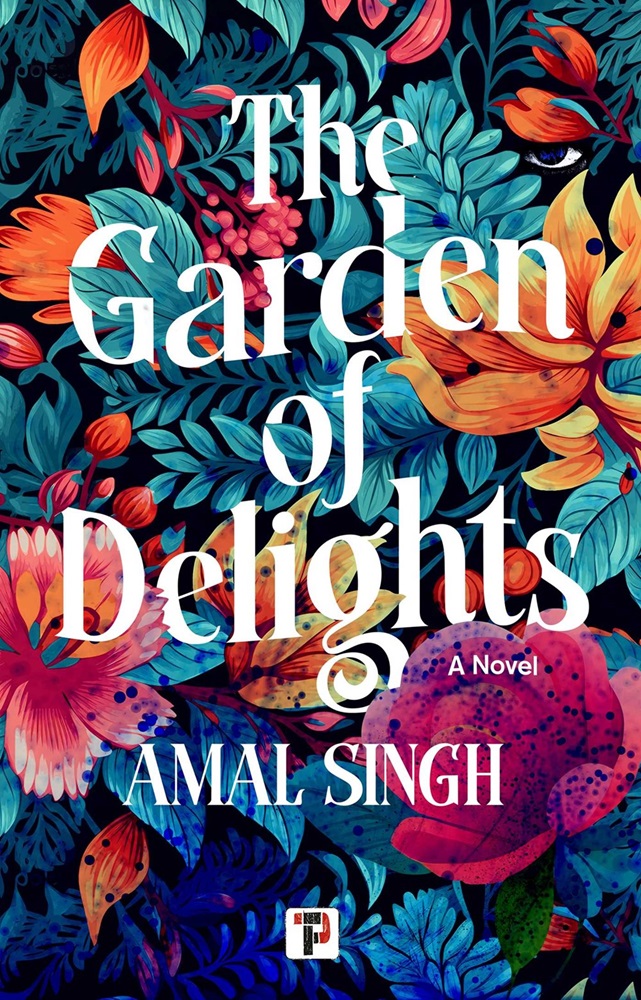
Genres: Adult, Fantasy
Representation: Desi-coded cast and setting
ISBN: 1787589080
Goodreads
Amal Singh is an engaging and motivated writer from Mumbai, India, with a long list of short story credits in Clarkesworld, F&SF, Apex, Fantasy and many others.
In the city of Sirvassa, where petals are currency and flowers are magic, the Caretaker tends to the Garden of Delights. He imparts temporary magical abilities to the citizens of Sirvassa, while battling a curse of eternal old age. No Delight could uplift his curse, and so he must seek out a mythical figure. A god. When a Delight allows a young girl an ability to change reality, the Caretaker believes he’s at the end of his search. But soon a magical rot takes root in his Garden, and the Caretaker must join forces with the girl and stop it from spreading. Even as he battles a different rot that plagues Sirvassa, he learns that Delights are always a precursor to Sorrows.
I received this book for free from the publisher in exchange for an honest review. This does not affect my opinion of the book or the content of my review.
This is a really, really beautiful book, with a very unique world that I fell in love with – but I found the prose really difficult. It’s hard to explain, because at the same time the prose is also gorgeous, with really incredible imagery, sensual description, and lovely turns of phrase.
But the rhythm of the writing is very…odd? It’s constantly jarring – like listening to bad music. I grit my teeth and thought I would get used to it, or that I could ignore it because the rest of the book is so stunning that dealing with the prose was worth it. But – I’m not sure if my tolerance got worn down or if the issue actually did get worse as the book progressed, but a little after the halfway point I just couldn’t take it anymore.
This is a problem that most readers aren’t bothered by – I’ve talked about writing sounding ‘out of tune’ before, and no one ever has a clue what I’m talking about. So unless you do know what I’m talking about (in which case, please message me, because I so badly want to discuss it with someone who gets it!) you can ignore everything I just said and pick up Garden of Delights without worrying about it.
Setting that issue aside, I do think the dialogue is often pretty terrible, and there was a lot of choppy action – people suddenly saying or doing things out of nowhere. But neither of those are enough to stop this book from being objectively gorgeous and wonderful, and I really hope it reaches all the readers who are going to adore it.
Because I’m so conflicted, I’m not going to give this one a rating – I really don’t know how I feel about it. (Except massively disappointed that I just can’t love it like I want to.)
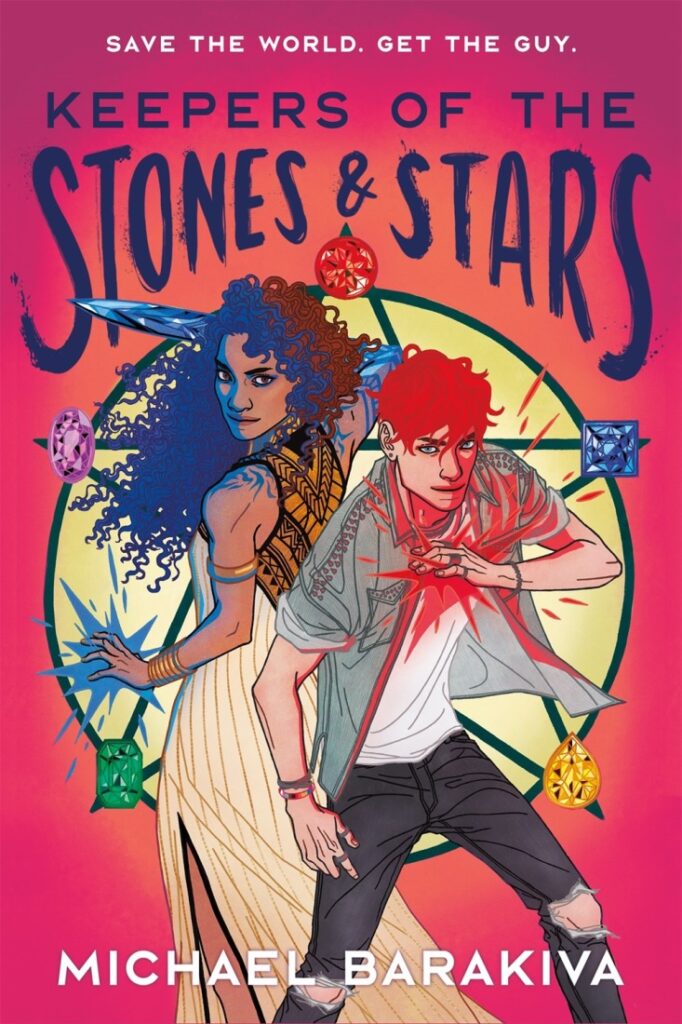
Genres: Fantasy, Contemporary or Urban Fantasy, Queer Protagonists, YA
Representation: Gay MC, queer Latina MC
ISBN: 0374314403
Goodreads

Keepers of the Stones and Stars is a witty, young adult contemporary epic fantasy about a cheeky quintet of teens chosen by magical gems to save the world.
Save the world.
Get the guy.Reed is leading his best he’s just kissed the boy of his dreams, his band is finally taking off, and he’s a shoo-in to getting elected as next year’s Student Council president. But he’s ready to give it all up when his suspiciously aristocratic guidance counselor tells him he has been chosen to go on the adventure of a lifetime.
Because Reed is the first of five Stone Bearers to be chosen by magical gems and granted their powers. All he has to do is unite all five and lead them to seal a portal that will release an onslaught of uncontrollable chaotic magical energies, and destroy the world as we know it. It’s up to the Ruby, Sapphire, Topaz, Emerald, and Amethyst Bearers to save the world, fulfilling their roles in a centuries-old cycle that dates back to 17th century Mughal India and the first Keepers of the Stones and Stars.
I received this book for free from the publisher via NetGalley in exchange for an honest review. This does not affect my opinion of the book or the content of my review.
I think a big, BIG part of why I didn’t click with this is that it is not the kind of YA with crossover appeal to Adult readers.
Will actual teenagers like it? Yes, I think so! Some of them! But it is not meant for us, fellow adults of the internet.
And that is okay! It’s great when a YA book also works for adults, but they don’t have to. They’re not meant to. And I’m not going to call this a bad book because it’s written for its intended audience.
Is it a book I’d hand to my teenage siblings? Probably not – while it sounds great from the blurb, I thought the execution was…lacking. The prose is pretty basic, the premise a lot simpler than I was expecting, and the infodumping constant. But also inconsistent: when a magical (potential) villain appears in the early chapters, no one explains who she is, and the main character doesn’t even ask! Even when she keeps being mentioned, referred to, it’s like no one is curious or feels like explaining who (and what) she is!
Reed, aforementioned main character and the magically chosen/destined Leader of the stone bearers, is very annoying – I really disliked how he believed everything he was told without question, and never asked for proof – even of the existence of magic! Come on. But Reed is a delight compared to the Wise Mentor figure, Mr Shaw, who is pompous, patronising, and has pretty alarming attitudes re colonialism and also being friendly with dictators.
I read the first 20%, and I thought there was a possibility that Mr Shaw, and the whole lineage of mentors, might be corrupt, and the story was not as simple as it seemed. But I wasn’t nearly invested enough to stick around to find out.
Queer kids saving the world is awesome, but even judging it as objectively as possible, I wish this had been done better. I think it’s probably an okay, maybe even a fun, read for the right teen, but it doesn’t live up to its potential. Although again, it’s possible the book twists and becomes something less predictable after the 20% point. I just…wouldn’t hold my breath on it turning into something properly impressive.
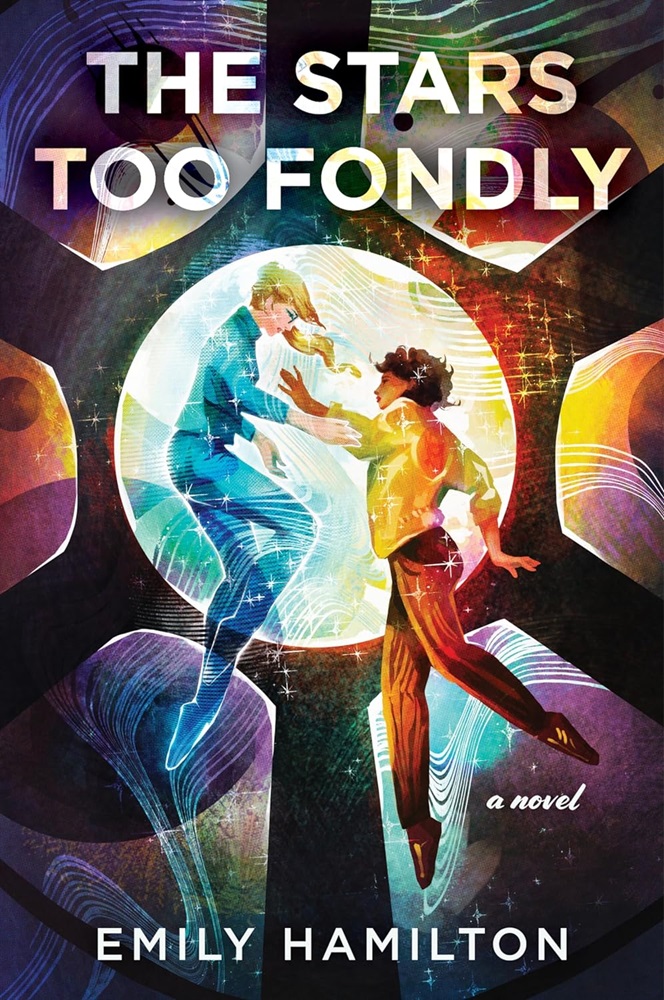
Genres: Adult, Queer Protagonists, Science Fantasy
Representation: Sapphic MC, Black trans secondary character, Chinese American secondary character, nonbinary secondary character, F/F
Published on: 11th June 2024
Goodreads

In her breathtaking debut—part space odyssey, part sapphic rom-com—Emily Hamilton tells a tale of galaxy-spanning friendship, improbable love, and found family.
So, here’s the thing: Cleo and her friends really, truly didn’t mean to steal this spaceship. They just wanted to know why, twenty years ago, the entire Providence crew vanished without a trace, but then the stupid dark-matter engine started on its own. Now these four twenty-somethings are en route to Proxima Centauri and unable to turn around while being harangued by a hologram that has the face and snide attitude of the ship’s missing captain, Billie.
Cleo has dreamt of being an astronaut all her life, and Earth is a lost cause at this point, so this should be one of those blessings in disguise that people talk about. But as the ship travels deeper into space, the laws of physics start twisting; old mysteries come crawling back to life; and Cleo’s initially combative relationship with Billie turns into something deeper and more desperate than either woman was prepared for.
I received this book for free from the publisher via NetGalley in exchange for an honest review. This does not affect my opinion of the book or the content of my review.
This is a book that is objectively pretty great – maybe even awesome – but isn’t quite for me.
I can’t point to anything being wrong with it, or done poorly; I pushed myself halfway through the book (instead of quitting at 20%, my typical cut-off point) because it is actually good. The writing and characters are all great. There’s no solid reason to DNF it.
I just…didn’t care. And that’s having read the three major revelations/twists in the first half, which turn The Stars Too Fondly into something VERY different from what I was expecting – and not a bad something! It’s very cool! I like being taken by surprise! The stakes become infinitely higher, and a whole host of new possibilities open up, making it (at least for me) impossible to predict where the story was going to go!
Lots of awesome, in other words!
But something was missing; I wasn’t connecting to any of the characters, I wasn’t invested in the plot, and even though I can see that objectively Revelation the Third is really exciting and unique and I have no idea what direction Hamilton’s going to take it in…I don’t care. I’m not interested, even though I really should be. This should tick so many boxes for me; I ought to be so excited by the worldbuilding and what Hamilton is going to do with it. And I’m just not.
I don’t know why. I do think the problem is probably me, not the book; I would happily recommend The Stars Too Fondly to a whole bunch of my friends, and I think many readers of my blog will love it. Hells, maybe I’LL love it, if I try again in a year or something; maybe I’m just in the wrong headspace right now, and I would love it if I read it at a different time. I hope so.
But at this time it’s a slog to get through, and I’m bored, and I’m tired. So. Call it a DNF-for-now, not a DNF-forever. I’ll cross my fingers. If it sounds interesting to you, I strongly encourage you to pick up a copy. But I’m putting mine aside.
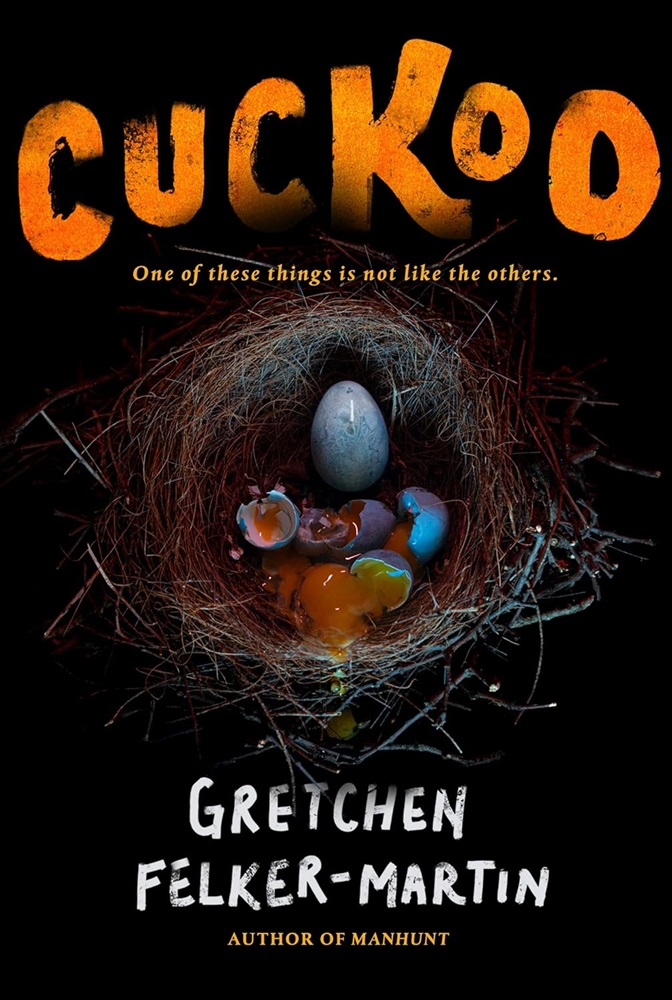
Genres: Adult, Horror, Queer Protagonists
Representation: Queer and QBIPOC cast
Published on: 11th June 2024
Goodreads

Cuckoo is a searing new novel from Manhunt author Gretchen Felker-Martin, where a motley crew of kidnapped kids try to stay true to themselves while serving time in a conversion camp from hell.
In the late 90s, five queer kids, whose parents want them “fixed,” find themselves thrown together at a secretive "tough love" camp deep in the scorching Utah desert.
Tormented and worked to the point of collapse by hardline religious zealots intent on straightening them out, they slowly become aware that something in the mountains north of the camp is speaking to them in their dreams, and that the children who return home to their families have...changed.
I received this book for free from the publisher via NetGalley in exchange for an honest review. This does not affect my opinion of the book or the content of my review.
I ended up having so many thoughts about this one that I gave it its own review post, rather than the short-ish thing I do here in my DNF wrap-up. So go read that, if you want my take!
Did you DNF anything this month?
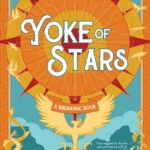


I don’t hear the rhythm of books (I am mostly a person without rhythm) but I do feel like books have flavor and mouthfeel. Which is also odd because I lost most of my sense of taste to a poorly chosen prescription nasal spray when I was 12 or so (don’t take flonase kids, it’s not good for you).
That’s absolutely fascinating though! Is it like synesthesia, do you think? My husband has that, he hears colours.
So when you say a book has a flavour, you mean it literally, not the way reviewers say it when we’re being flowery? What are some of your favourite books for flavour and mouthfeel??? If you’re comfortable talking about it! No pressure. (Also, yikes, my sincere regrets on your sense of taste! That’s absolutely terrible and you have my sympathies.)
I don’t think it is synesthesia because I mostly grew out of it as I got older. (I do have a vivid memory of explaining to a teacher that I hated looking into peoples eyes because at the time the whites of folks eyes left a sort of gritty bad egg taste on the back of my tongue. That teacher ended up writing tons of letters to my mom arguing that I needed to be institutionalized which my mom kept because she thought they were *hilarious* but anyway… These days folks’ eyes don’t leave any taste at all in my mouth and that’s probably for the best.) They aren’t even really flavors that I could describe, more like sensations that feel mouth focused. Closest I can come is Terry Pratchett books (particularly the kid ones) taste kind of like minerally sweet water. Aliette de Bodard stories also always have a kind of flavor, something sort of high and light on the tongue. Tolkien’s books were always heavier, more like bread. But a lot of books don’t taste like anything and I don’t know if that’s my aging brain chemistry or just how modern books are. Though also a surprising number of books make me think of cake, particularly fruit cakes and chocolate.
I think what was going on was at the time I was reading a ton of books and I used to have near perfect recall when it came to written text. I think I was accomplishing that by using more senses than usual to create the stimulation that lets the brain reproduce information. As an adult I have a lot less time to read books and after I developed vertigo and switched to audiobooks I sort of lost my ability to visualize text. Though any books I read before that happened are still pretty ingrained. I run into this problem with podcasts where they’ll summarize a book that the hosts read like last week and I read some 15 years ago and they’ll forget details that I can still recite from memory and it eats at me.
Sorry for taking so long to reply to this!
I mean, I would have found those letters hilarious too. But that must have been WILDLY uncomfortable, no wonder you didn’t like eye contact! So strange that you grew out of it, more or less – do you prefer it being mostly gone?
So kind of flavours, but also kind of specific mouthfeels? That’s so fascinating!!! Especially because it’s only some books and not others…I’d love to know if you did/are ageing out of it, somehow, or if it’s the lack of time + vertigo leading to the loss of that perfect recall. I know some people who can remember where they were or what they smelled when they FIRST encountered a book, things like that, but that doesn’t seem like the same thing – that’s snapshots of your surroundings, not using multiple senses to simulate what you’re reading. Do you have a very vivid imagination? If you daydream something, do you add in a lot of sensory details? When I read, my ‘simulation’ is mostly all visual, scents and sounds etc aren’t really a part of it, but if you were using more senses than usual to…what? Imagine the story? Or reproduce information? I’m not sure what you mean by that bit.
So when you recall a story, you visualise the text? Or at least used to? I wonder why hearing a story instead of seeing it in text would make such a difference… You must have spent lots of time thinking about this??? Did you ever get a MRI, or have some other specialist check you out?
I always twitch when someone mixes up or forgets details of a book I know too 😅 When I was six, I corrected my teacher when she was reading aloud to us a book I’d already read; my recall was pretty word-perfect back then. But I reread books a lot less than I used to, so I usually don’t remember the exact wording any more. My memory’s not NEARLY good enough to memorise text without reading it multiple times!